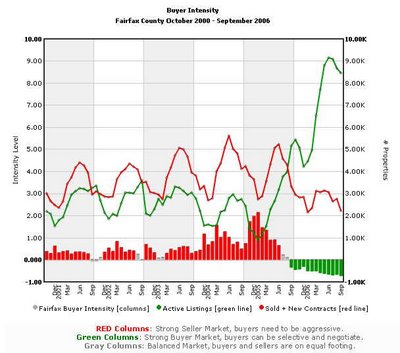How will you become rich?

Surveys are a funny thing. They are often cited (especially on news networks like CNN, who think that the release of a new poll is, for some unknown reason, newsworthy). The scientific flaws that confront polls are daunting. For one thing, polls cannot tell you what a person thinks, only what he's willing to admit out loud. Secondly, the phrasing used in a poll can alter the results in drastic ways.
Think back to the 2004 presidential election when Bush won in a close election. The major story for the following months was "moral values" and how that issue won the election for Bush. The power of this "moral values" voter bloc was indicative of a major swing in American society, and a result of the growing divide between the "Red" states and the "Blue" states.
There was just one small problem... This "moral values" demographic was simply a creation of the pollsters. Were moral values an equally powerful voting motive in 2000? Or 1996? We'll never know, because no one ever asked those voters if "moral values" were a major instrument in deciding their vote. This exceptional article illustrates far better than I the myth of the "moral values" voter.
So if you took a survey of real estate investors and asked them why they do what they do, I'm certainly you'd have a group of outliers who claimed to invest for "societal benefit" or "future management experience" or other nonsense. But the vast majority of real estate investor would probably honestly answer your question and tell you that they do it for financial gain.
or "future management experience" or other nonsense. But the vast majority of real estate investor would probably honestly answer your question and tell you that they do it for financial gain.
That's the dream isn't it? The beach side mansion, the personal jet, the lavish trips to Europe, the beautiful cloths and huge parties. We may not expect all of these things, but they are certainly part of the dream that drives us. We are investing in real estate to get rich, or as close to rich as we possibly can.
The rich in America can be divided into two groups, the patient rich and the lucky rich. I'm sure that there is going to be a lot of scoffing at my division, much less the names I've assigned the two groups, but be patient and bear with me as I explain.
By now books like The Millionaire Next Door have publicized the idea of the patient rich to the point where I don't feel the need to over explain the concept. These are the people who save patiently their entire lives. They live below their means, save everything that they can, and invest their saving for the long-term. Getting rich in this way is not difficult (anyone with an income can do it with enough discipline), but it takes a frustrating amount of time to achieve, and after living such a disciplined lifestyle for so long, it's unlikely that when you break the 7 or 8 digit barrier you are going to run out and drink $500 champagne every night.
So it's the lucky rich that I want to talk about. This group involves a diverse groups of people ranging from Tom Cruise to Donald Trump to Kobe Bryant to Bill Gates. Already I hear the protests, "but [insert rich person's name here] works hard for his/her money. He/she earns every penny paid to him/her". That's almost certainly true. I've never met a wealthy man who didn't work extremely hard for his money. But I've also met many not-wealthy people who work equally hard for their money. What's the difference?
Let's look at Tom Cruise for a minute. Though acting sounds very glamorous, I've heard stories about the grueling lifestyles that many successful actors face. They work 18 hour days, often have to gain or lose large amounts of weight in short periods of time, and can spend months living in trailers away from home. The most successful actors are often perfectionists to the point of obsession. It's easy to see why they earn millions of dollars a film instead of the high school dropout who is waiting tables in L.A. But there are many very hard working aspiring actors in L.A. as well who are still earning almost nothing. Why is Tom Cruise a millionaire and they are earning below average salaries?
Bill Gates created a software company that has made him the wealthiest man in the world. I've known and read about dozens of people who also created software companies. Some of them are multi-millionaires now, some are broke, and some are still working hard every day for a relatively average salary. Obviously some of the broke entrepreneurs were fools and looking for a short cut to wealth, but many of them were every bit as hard working as the success stories. What's the difference between them?
The difference is luck. If you are a fan of any sport you can probably identify with this ages old adage for the NFL, "it takes skill to get to the playoffs, but luck to win a Superbowl." The idea behind that saying is that a good coach and a good general manager can put together a team which is generally successful and will win a majority of its games. That means that the team will typically be successful during the regular season (when success is measured by the results of 16 independant games), when they can have some bad luck, lose a game early, and still do very well. However, once you get into the playoffs, one small mistake can cost you the game and end your run. At this point luck plays such a powerful role that one bad officiating call (which wouldn't even be your fault) could undo all of your work.
The quintessential example of this would be the Indianapolis Colts. For the last 4-5 years they been one of the absolute best teams in football. Their success in the regular season shows what a great job their office has done is assembling a tremendous team, arguably one of the best ever in the NFL. But they have yet to even go to a Superbowl. On the other hand we have the New England Patriots, also an example of how a good manager can assemble an excellent team, although their regular season records haven't been as good as the Colts. But with a remarkable string of good luck (including the now-infamous "tuck rule") they've won the championship three times in the last 5 years.
On the other hand we have the New England Patriots, also an example of how a good manager can assemble an excellent team, although their regular season records haven't been as good as the Colts. But with a remarkable string of good luck (including the now-infamous "tuck rule") they've won the championship three times in the last 5 years.
So obviously I'm just saying that it all comes down to luck, right? So why bother even trying? Not so fast my friend! The difference between the Colts and the Patriots may just be luck, but the difference between the Arizona Cardinals and the Patriots is much more. (If you are tiring of the football analogy, bear with me, this is the last one. I promise!) While the Patriots have won three Superbowls, Arizona, like the Colts, has won zero. But unlike the Colts they've never even had a chance. Arizona, plagued with poor management, hasn't even made it to the playoffs. The difference between the Colts and the Cardinals is that every December (when luck kicks in) the Colts have a shot to go home with the title. The Cardinals are guaranteed to be watching the game at home.
The parallels to business are obvious. The difference between Donald Trump and some other real estate investors is simply that The Donald got lucky on some of his bigger deals (remember, he's had almost as many deals go bad as have gone well). The other investors might be working just as hard as him, and have just as much knowledge as him, but they haven't had the luck to get over the hump. On the other hand, the difference between The Donald and Casey Serin, is that The Donald worked hard to acquire the knowledge necessary to succeed and then worked hard to apply it. Casey, on the other hand, is living in a pipe dream where he can go to a weekend seminar and start earning millions every year. Casey would like to skip the "work hard and watch for your break" step and just get lucky from the get-go. After all, since every deal turns a profit, the more deals the better, right?
So learn your lesson from the NFL. Every owner wants to win the Superbowl. Some owners (ok, I lied, here's another NFL analogy) like Daniel Snyder, owner of my beloved Redskins, try to buy an all-star cast that will shoot straight to the championship. So far that approach has failed miserably (one playoff appearance in 7 years). Other owners like Bob Kraft, owner of the Patriots, just build a good solid team and take advantage of the opportunities that are presented them.
In real estate investing the goal might be to own a Manhattan block. But if your approach is to try to buy 17 houses in your first year and trade to the block in your second, you're not only going to fail but that failure will crush you. If instead your approach is to build up a solid business piece by piece, then watch for profitable opportunities and seize them, you'll be on much more solid ground. And even if you never see your big break that gets you into the wealthiest of investors, you are still likely to do very well.
I'd be remiss not to point out that the lucky rich and the patient rich are not correlated. If Tom Cruise hadn't gotten his big break in Legend would he still be wealthy? No one but him knows for certain, but I'll take a shot and wager that most Hollywood stars wouldn't end up with wealth without their million dollar contracts.
But there are many software entrepreneurs who are already well on their way to great wealth before Microsoft or Google swoop in with multi-million dollar acquisition offers. They work hard and build up a solid business with fair income, and then save a fair amount of that income for the future (since owning your own company is quite risky). Then when Yahoo or eBay make their rich offers, these entrepreneurs just transition from patient rich to lucky rich.
Patient wealth come from how you handle the money you have, lucky wealth comes from being in a position to have large sums of money paid to you. Both patient wealth and lucky wealth require discipline and hard work, but only patient wealth is guaranteed. It's exciting and fun to go after lucky wealth, and I encourage people to go for it. But be smart and hedge your bets, you can play the safe game at the same time that you play the lottery. If you are into real estate investing, put yourself into your ambition and work hard to make the most you can. But also save at least 10% of all your income and invest it in vehicles that you don't directly control (such as stocks or bonds).
It may not be as sexy, but it never hurts to be on two roads to wealth at the same time.









